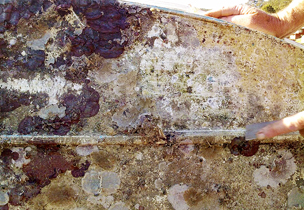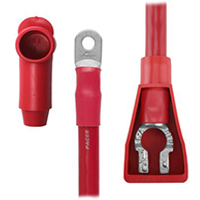Simple Ways to Protect your boat, Prevent Mold Growth
Posted by Pacer on 19th Mar 2019


Proper maintenance of a boat not only extends the life of the vessel it also serves to visually enhance the boat as well. Every step should be taken to improve and enhance your boat as it will save money in the long run and likely improve your boating experience. With that said, one of the easiest things to prevent that can damage your boat and cost you more money is mold. Mold is something no one wants on their boat. Over time it will spread and create further problems which can lead to all sorts of unseen issues. Washing your boat, as mentioned previously, is an easy way to help prevent mold growth but washing isn’t enough. Mold is a living thing, and as such, not as easy as dirt to just wash away. In order to effectively get rid of mold, you'll need to use a mild soap solution. Using a mild solution when washing your boat kills any mold spores that may be trying to take hold. A simple method to add a little more potency is to add a little bit of white vinegar to your wash. The white vinegar is strong enough to wipe out the mold without damaging any of the coatings your boat may carry. This way you can protect your boat and protect your coatings in the same step. So, once you’ve washed your boat and used vinegar or a similar chemical to remove mold, the next step is to fully dry your boat. This can be as simple as just leaving it in the sun for a time. This may seem like a no-brainer but many people wash their boat and just stick it into an unventilated enclosed storage unit without giving it a chance to dry. This is just asking mold to take hold. The last thing you want to do is put a tight-fitting cover over a wet boat and stick the boat into a dark enclosed garage. Make sure your boat is dry before you put it away and your chances of mold growth on your boat will be greatly reduced. As stated above, it's as simple as leaving your boat in the sun for a while to allow the heat and wind to take care of the moisture. Then you do not have to worry about mold taking hold.

Things to remember:
- Mold growth can be prevented
- Mild soap solutions are enough
- Vinegar can help
- Fully dry the boat before storing
New battery cable assemblies make all the difference:
Corrosion can seem to grow in a similar manner to mold. Although it is not alive, corrosion will spread and is a serious problem that needs to be addressed immediately. One of the most common places for mold to take hold is the battery and your battery cable assemblies. People tend to just clean them off and continue to reuse the same cables. The problem is that over time corrosion and repeated cleaning can cause a cable to lose some of its current carrying capacity. All Pacer battery cable assemblies are made from annealed fine stranded tinned copper. They also carries a flexible and durable PVC insulation that is specifically designed with flexibility in mind. All our battery cable assemblies are finished with a high-quality epoxy lined heat shrink helping it resist the harshest environments. All these things come together to create the ideal battery cable assembly to help resist corrosion. These are so tough, that even hot rod enthusiasts turn to us for their battery cable needs. You know they only put the highest quality materials into their hot rods. That just goes to show the level of quality you'll receive.
Replacing fuses and fuse blocks protects your electrical system:
Fuses are an extremely useful part of any electrical system. As you are probably aware, they serve as an intentional weak link designed to break before a surge can reach and damage expensive equipment. People do not have an issue with replacing the fuses, but how often have you considered the fuse block itself. Even without moving parts, these tend to wear down over time and replacing them is a safe bet to get the most out of your electrical system. Warning signs to look for include; burn marks around fuse entry points, and the same fuses blowing repeatedly. Although these can both be caused by a variety of issues, it's still a safe bet to inspect your fuse block just to be sure.

